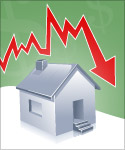
Housing Shortage in the U.S.
The United States is facing a housing shortage, and it is affecting millions of Americans. The demand for housing has increased dramatically in recent years due to factors such as population growth, a strong economy, and low-interest rates. However, the supply of new homes has not kept up with the demand, resulting in a housing shortage. This has led to rising housing costs, increased homelessness, and other social and economic problems.
The housing shortage is a complex issue that affects different groups of people in different ways. Renters, home buyers, and low-income families are among the most affected by the shortage. For renters, the shortage has led to rising rents and increased competition for affordable housing. For home buyers, the shortage has made it harder to find a home and has driven up home prices in many areas. Low-income families are especially vulnerable to the effects of the housing shortage, as they are often unable to afford rising rents or the high cost of homeownership.
The shortage of affordable housing has also become a significant issue. The rising housing costs have made it increasingly difficult for many people to find affordable housing, which has led to an increase in homelessness and other social problems. Finding solutions to the housing shortage and the lack of affordable housing has become a top priority for policymakers, housing advocates, and community leaders across the country.
In this article, we will explore the housing shortage in the US, including its causes, effects, and potential solutions. We will also look at the challenges of finding affordable housing in the current market and the policies that are being proposed to address the issue. Finally, we will provide an outlook on the future of the housing shortage in the US, including potential trends and projections.
Causes of Housing Shortage in the US
The housing shortage in the United States is a complex issue that has been building up for decades. There are several reasons behind the shortage, ranging from demographic shifts to regulatory barriers. One of the primary causes of the housing shortage is the lack of new construction. According to the National Association of Realtors, the United States is currently experiencing a housing shortage of between 5.5 and 6.8 million units, with the gap between supply and demand widening every year. This shortage is partly due to a decline in new construction, which has failed to keep pace with population growth and demand for housing.
Another significant factor contributing to the housing shortage is the rising cost of construction materials, including lumber, steel, and concrete. The COVID-19 pandemic has disrupted global supply chains and caused shortages of raw materials, driving up costs and delaying construction projects. In addition, tariffs on imported materials have increased costs for builders, making it more challenging to construct affordable housing.
Regulatory barriers also play a role in the housing shortage. Many local and state regulations, such as zoning laws and building codes, can drive up the cost of new construction and limit the supply of affordable housing. For example, minimum lot sizes and setback requirements can increase the cost of land and reduce the number of units that can be built on a given parcel. Similarly, building codes can add significant costs to new construction projects, making it more challenging to build affordable housing.
Impact of Housing Shortage on Society
The housing shortage in the United States has significant consequences for individuals, families, and communities. One of the most obvious impacts is the rising cost of housing, which has made it difficult for many Americans to find affordable homes. According to the National Low Income Housing Coalition, there is a shortage of 7.2 million affordable and available rental homes for extremely low-income renters, defined as households earning less than 30% of the area median income. This shortage has contributed to a rise in homelessness, particularly in urban areas.
The housing shortage also has economic consequences. The lack of affordable housing makes it more difficult for businesses to attract and retain workers, particularly in high-cost areas like California and New York. This can limit economic growth and harm productivity. In addition, the high cost of housing can leave families with less disposable income, limiting their ability to spend on other goods and services.
The housing shortage also has social consequences. Housing instability can lead to poor health outcomes, including increased rates of mental health issues and chronic illnesses. It can also exacerbate existing inequalities, particularly for low-income and minority households. For example, Black and Hispanic households are more likely to experience housing insecurity than white households, with Black households experiencing the highest rates of homelessness.
In conclusion, the housing shortage in the United States is a complex and multifaceted issue that requires a comprehensive approach to address. From increasing new construction to reforming regulatory barriers, policymakers and advocates must work together to ensure that all Americans have access to safe, affordable housing.
Effects of the Housing Shortage
The housing shortage in the US has had a significant impact on various groups of people. Renters have been hit particularly hard, with a shortage of available rental units leading to rising rents and increased competition for housing [6]. This has made it difficult for low-income families to find affordable housing, leading to housing insecurity and potential homelessness [7]. Homebuyers have also been affected, as the lack of inventory has led to increased competition and rising home prices [8]. Additionally, the shortage of affordable housing has contributed to a widening wealth gap, as low-income families are unable to afford housing in desirable areas with good job prospects [9].
Affordable Housing
The shortage of affordable housing in the US has become a major challenge for many Americans. Rising home prices, stagnant wages, and a lack of affordable housing options have made it difficult for low-income families to find housing that meets their needs [10]. According to a report by the National Low Income Housing Coalition, there is a shortage of more than 7 million affordable and available rental homes for extremely low-income renters in the US. This shortage has led to an increase in homelessness and housing insecurity, particularly among vulnerable populations such as seniors, veterans, and families with children.
Policy Solutions for Housing Shortage
Addressing the housing shortage will require a multi-faceted approach that involves a range of policy solutions. Increasing funding for affordable housing programs, such as the Housing Choice Voucher program and Low-Income Home Energy Assistance Program, can help to provide more affordable housing options for low-income families. Relaxing zoning regulations and incentivizing developers to build more housing, particularly in high-demand areas, can help to increase the supply of housing and reduce housing costs. Additionally, programs that provide down payment assistance and other forms of financial support to first-time homebuyers can help to increase access to homeownership for low- and moderate-income families.
Future Outlook
The future of the housing shortage in the US is uncertain, and projections vary depending on a range of factors, such as population growth, economic trends, and policy decisions. However, it is clear that addressing the shortage of affordable housing will require a concerted effort from policymakers, developers, and advocates. With a growing awareness of the importance of affordable housing and the impact of the housing shortage on vulnerable populations, there is hope that the US can move towards a more equitable and sustainable housing system in the coming years.
Sources:
- https://www.nar.realtor/research-and-statistics/housing-statistics/americas-housing-crisis
- https://reports.nlihc.org/gap
- https://www.cbpp.org/research/housing/federal-rental-assistance
- https://www.hud.gov/program_offices/comm_planning/affordablehousing/library/first-time_homebuyer_programs





